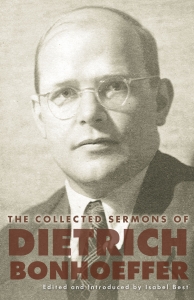
The sermon below is taken from “The Collected Sermons of Dietrich Bonhoeffer,” edited and introduced by Isabel Best. // The overcoming of fear—that is what we are proclaiming here. The Bible, the gospel, Christ, the church, the faith—all are one great battle cry against fear in the lives of human beings. Fear is, somehow or other, the archenemy itself. It crouches in people’s hearts. It hollows out their insides, until their resistance and strength are spent and they suddenly break down. Fear secretly gnaws and eats away at all the ties that bind a person to God and to others, and when in a time of need that person reaches for those ties and clings to them, they break and the individual sinks back into himself or herself, helpless and despairing, while hell rejoices….
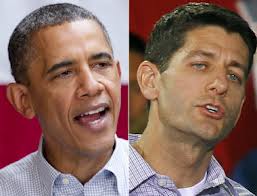
“The individual today is often suffocated between two poles represented by the State and the marketplace” (Pope John Paul II, Centesimus Annus #49). The 2012 U.S. presidential campaign has, to a degree unseen for several years, brought to the fore the fundamental issues of political life: the relationship of the individual to society, the role of the state and of the economy in society, etc. The selection of Paul Ryan as Republican Mitt Romney’s running mate, an intellectually capable and ideologically driven conservative, ensures that will continue to be the case….
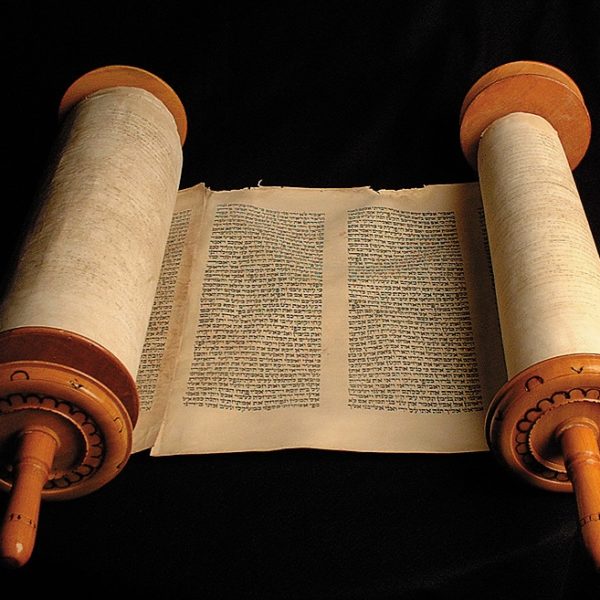
This week’s lection is a well-loved, much-cited chestnut from which a thousand moralistic sermons have germinated. And with good reason. Solomon becomes king and when given the chance to have any wish fulfilled by God, chooses wisdom over the usual favorites, long life, wealth and power.
As even a cursory glance at this weeks lectionary reference will reveal, however, there are a couple of gaps in the text. The first is what happens just before Solomon dies, as he gets last minute instructions from David about scores that the family needs settling. The second is between the time that Solomon ascends to the throne, and the time Solomon and Yahweh have their little heart-to-heart. When you read that part that the lectionary omits, what you find is not Solomon sitting around having his daily quiet time in prayer and study of the scripture, but rather in the ruthless pursuit of control and the exercise of the royal prerogative of vengeance against the enemies of the monarchy…

I confess it – I am an Olympics junky! Glued to the TV last night as Bolt, Blake and Weir gave Jamaica at clean sweep in the 200 metres on the 50th anniversary of Jamaican independence…John Reader is right to remind us in his recent post on this Blog that the Roman ethic of ‘bread and circuses’ infused the ancient games – they were a means of social control. Is that what has been going on in London for the last two weeks?

In the cover story of the August 6 edition of Time magazine, Joe Klein offers a rather grim account of the U.S. national conversation about guns in the wake of recent mass shootings. He writes about the ways in which the political climate, increasingly and rather bizarrely governed by the gun lobby, has made it impossible to have any serious political dialogue about the regulation of guns and ammunition. The article is provocatively entitled, “How Guns Won.” It is clear to me from reading the piece, however, that Mr. Klein wants to stay far from actually attributing victory to guns themselves. Rather, he wants to maintain the more commonsense view that it is those political actors that value gun-owning, certainly backed by the gun industry but also fiercely devoted to libertarian ideals, that have won decisive victories. However, I think we could take Mr. Klein’s title quite literally and say that guns themselves have essentially won what Bruno Latour might call a “trial of strength” in which they had been engaged with their critics….

The crucial thread in Perry’s narrative has been that of the “turn to loyalty”: where Rawlsian liberalism can dismiss the problem of religious loyalty and imagine that religious and political loyalties ought by their very nature never to conflict, Locke recognized clearly that such conflicts do happen, and such loyalties must be carefully attended to if they are to be harmonized. Accordingly, he provides not merely a solution of political theory, but a solution of political theology that attempts to establish, from within Christianity, the proper nature of Christian loyalty. Unfortunately, most interlocutors today simply no longer recognize the tension but persist in a naïve conviction that civil loyalty and religious loyalty ought to pose no threat to one another in modern America…
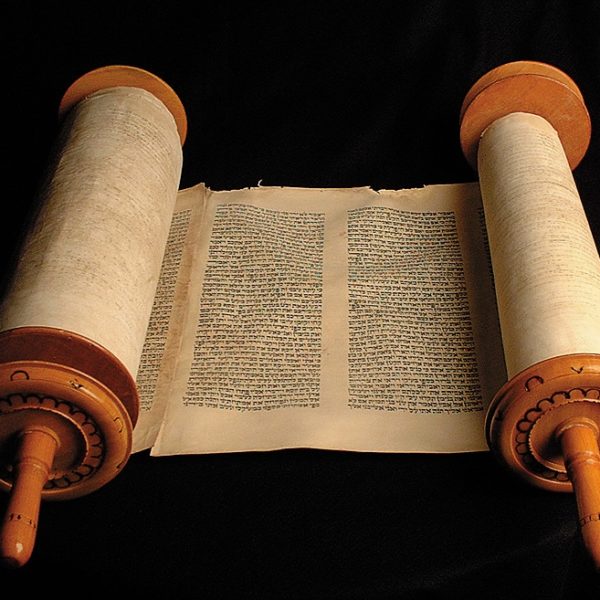
Samuel speaks of God as working in and through the events to deliver “ruin on Absalom.” This is not simply God with us. It is God against us–whenever we treat our “kingdom” as if it was ours and ours alone. Both David and Absalom acted as if their people, the Kingdom of Israel, were their own plaything.

We face a seductive fantasy of independence from a wider, dynamic order of things, with the result that our response to challenges in international relations or ecological crisis have been rather consistently out of touch. But of course this is far from simply an American problem. I suggest that it stems from a disease of the modern subject, a way of looking at the world that treats “its” objects as inert and easily manipulated. In other words, this is a deeply-rooted metaphysical problem, a constitutional failure to account for the capacity of objects in the world to push back…..
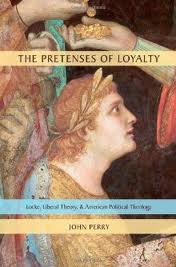
Chapters 4 and 5 of Pretenses of Loyalty constitute the heart of Perry’s argument, offering as they do an intriguing re-interpretation of Locke’s Letter Concerning Toleration and revealing the tensions that will bedevil it in following centuries. Perry’s overall thesis, we will recall, is that modern liberalism suffers from an amnesia, forgetting that there are in fact two prerequisites for a successful policy of religious toleration: harmonization of loyalties and abstract respect. Relying upon the latter alone, modern liberals find themselves flummoxed at the frequency with which border conflicts erupt between religion and politics—having agreed to tolerate all purely religious practices, governments find that many believers insist on expanding the scope of their religion to include civil matters. They ask that believers consent to be led behind a veil of ignorance, willing to treat others and themselves be treated as abstract rights-bearers, but many believers refuse.
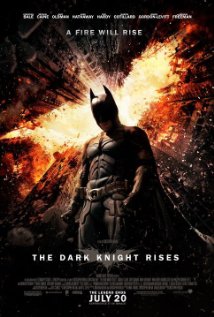
Nolan’s Dark Knight trilogy is obsessed with the question: what are the conditions of possibility for political judgment? Judgment, as Oliver O’Donovan has written in The Ways of Judgment, “both pronounces retrospectively on, and clears space prospectively for, actions that are performed within a community” and is therefore “subject to criteria of truth, on the one hand, and to criteria of effectiveness on the other” (9). Although judgment must meet both criteria, very often in the world of politics, they appear to be in rivalry. Truth-telling, in a world of fickle voters and predatory media, in a world of terrorists and hidden threats, can seem like a very unwise proposition, a luxury that must be dispensed with if order and justice are to be preserved. This tension haunts Nolan’s trilogy.

